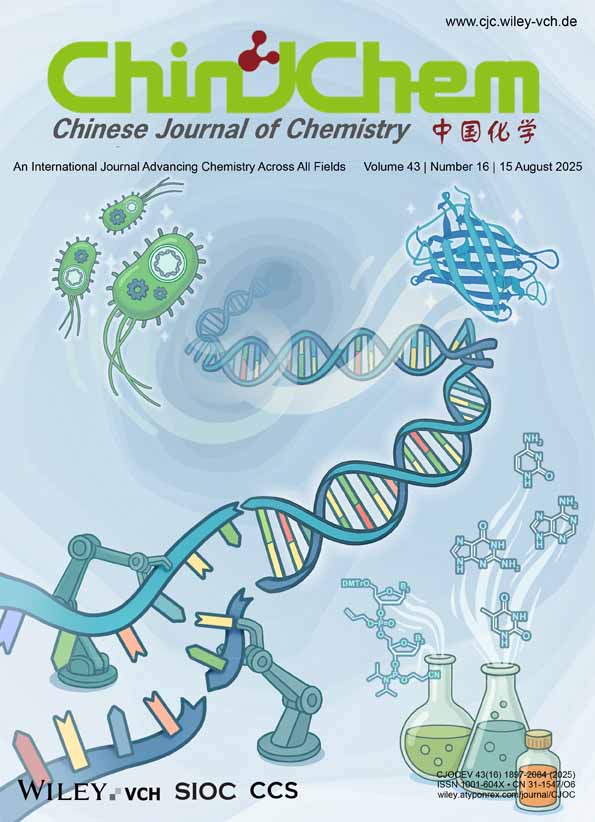Is there a “chain-foldability” effect without neighboring moiety-assistance
Abstract
The coaggregating tendencies of five methyl esters of saturated or unsaturated single-chain carboxylic acids, namely, octanoic (8-Me), dodecanoic (12-Me), stearic (18-Me), oleic (o-18:1-Me) and elaidic (t-18:1-Me) acids, were investigated in five aquiorgano binary solvent systems, V/V DX-H2O (ϕ=0.50, 0.45, 0.40, 0.30, 0.20), using naphthylethyl octyl (Np-8), dodecyl (Np-12), hexadecyl (Np-16) ether aa fluorescent probes. The orders of their coaggregating tendencies changed in solvents of different ϕ values. Our results could be rationalized by a chain-foldability effect without neighboring moiety participation.




